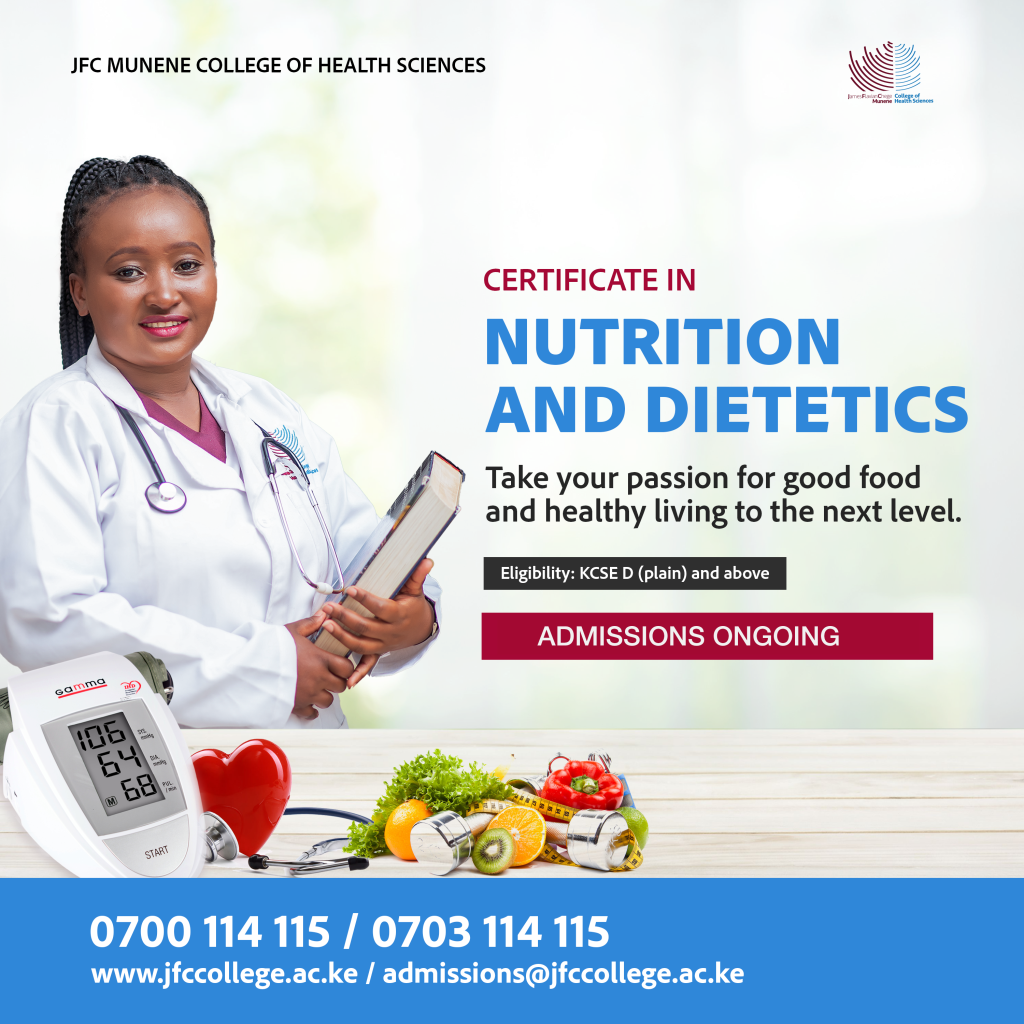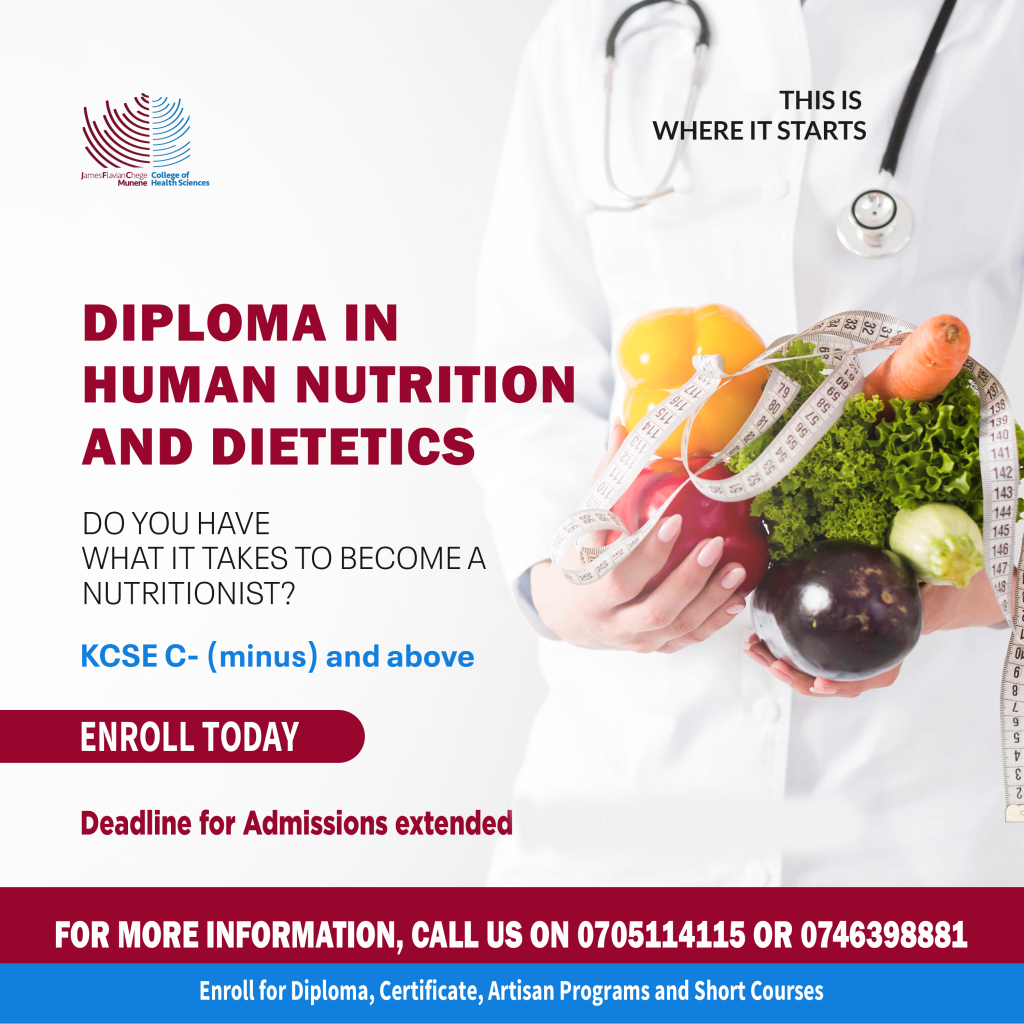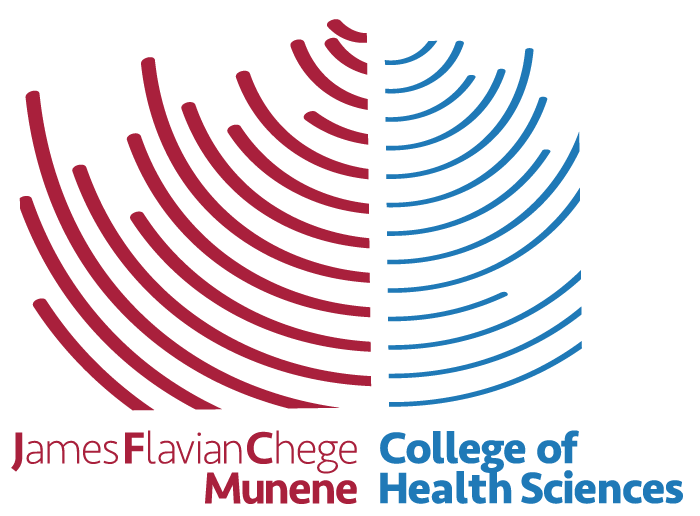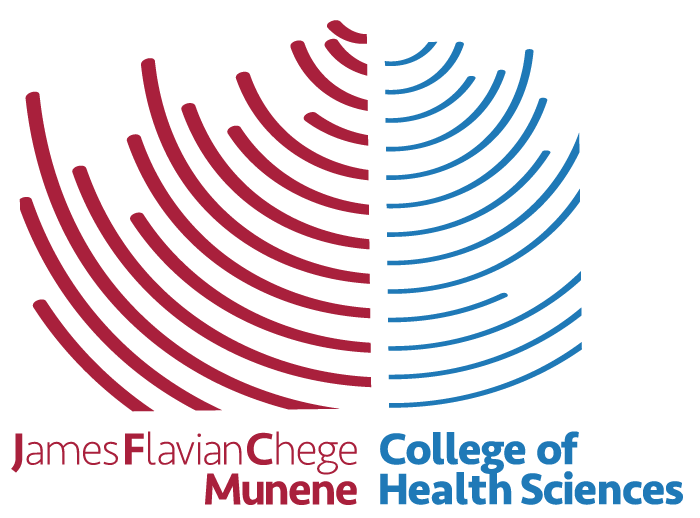The Future of Nutrition & Dietetics Education Trends, Challenges and Innovations
In an era marked by rapid technological advancements and evolving health needs, the field of nutrition and dietetics is experiencing significant transformations. As we look to the future, several key trends, challenges, and innovations are shaping the education landscape for aspiring nutritionists and dietitians. At JFC Munene College of Health Sciences, we are committed to providing a comprehensive and forward-thinking curriculum that equips students with the skills and knowledge needed to excel in this dynamic field.
Emerging Trends in Nutrition and Dietetics Education
- Integration of Technology in Learning:
Technology is playing an increasingly vital role in nutrition and dietetics education. Online platforms, virtual labs, and interactive simulations are enhancing traditional learning methods, making education more accessible and engaging. Students can now access a wealth of resources and tools that allow them to study at their own pace, conduct virtual experiments, and collaborate with peers worldwide.
For example, at JFC Munene College of Health Sciences, we utilise cutting-edge technology to provide students with virtual lab experiences that simulate real-world scenarios. This hands-on approach helps students understand complex concepts in nutrition and dietetics, preparing them for the challenges of modern healthcare environments.
- Emphasis on Personalized Nutrition:
The concept of personalised nutrition, which tailors dietary recommendations to an individual’s genetic makeup, lifestyle, and health needs, is gaining traction. This trend is influencing educational curricula, with programs focusing more on teaching students how to design personalised diet plans and interventions.
- Interdisciplinary Approach:
The future of nutrition and dietetics education involves an interdisciplinary approach, integrating knowledge from fields such as psychology, sociology, and environmental science. This holistic perspective allows students to understand the complex factors that influence dietary habits and health outcomes.
At JFC Munene College of Health Sciences, our curriculum emphasises interdisciplinary learning, encouraging students to explore how cultural, social, and environmental factors impact nutrition and dietetics. This comprehensive education equips graduates to develop effective interventions that address the root causes of nutritional issues.
- Focus on Public Health and Sustainability:
As global health challenges and environmental concerns rise, there is an increasing focus on public health nutrition and sustainability. Educators are teaching students about the importance of sustainable food systems and how they can promote health while protecting the planet.
Students at JFC Munene College of Health Sciences are encouraged to consider the environmental impact of food production and consumption and explore ways to advocate for sustainable practices within the industry. This knowledge is critical as future nutritionists and dietitians work towards creating healthier communities and a healthier planet.


Challenges in Nutrition and Dietetics Education
- Keeping Pace with Rapid Advancements:
One of the main challenges in nutrition and dietetics education is keeping pace with rapid advancements in research and technology. New discoveries in nutrition science and emerging technologies require constant updates to curricula, making it essential for educational institutions to stay at the forefront of innovation.
JFC Munene College of Health Sciences is dedicated to staying ahead of these changes, regularly updating our programs to reflect the latest developments in the field. Our commitment to continuous improvement ensures that our students receive the most relevant and up-to-date education possible.
- Addressing Diverse Learning Needs:
With the increasing diversity of students entering the field, educational institutions must address various learning needs and styles. This requires implementing flexible teaching methods and providing personalised support to ensure all students can succeed.
At JFC Munene College of Health Sciences, we pride ourselves on offering a supportive and inclusive learning environment. Our faculty and staff are dedicated to helping each student achieve their academic and professional goals, regardless of their background or learning preferences.
- Bridging the Gap Between Theory and Practice:
A significant challenge in nutrition and dietetics education is bridging the gap between theoretical knowledge and practical application. Students need opportunities to apply what they’ve learned in real-world settings to develop the skills necessary for success in their careers.
To address this challenge, JFC Munene College of Health Sciences offers extensive practical training opportunities, including internships and hands-on projects. Our students gain valuable experience working in hospitals, clinics, and community organisations, ensuring they are well-prepared for the workforce.

Innovations Shaping the Future of Nutrition and Dietetics Education
- Use of Artificial Intelligence and Data Analytics:
Artificial intelligence (AI) and data analytics are revolutionising nutrition and dietetics education by providing new ways to analyse and interpret nutritional data. These technologies enable students to identify patterns, predict outcomes, and develop evidence-based dietary recommendations.
Educational programs are incorporating AI and data analytics into their curricula, equipping students with the skills to utilise these tools in their future careers. This innovation is enhancing the quality of education and preparing students to meet the demands of a data-driven healthcare landscape.
- Development of New Nutritional Products:
Innovation in nutritional products is another exciting area of development. As consumers become more health-conscious, there is a growing demand for functional foods, supplements, and personalised nutrition solutions.
Nutrition and Dietetics students at JFC Munene College of Health Sciences are encouraged to explore the creation and marketing of innovative nutritional products, preparing them to contribute to the development of new solutions that meet consumer needs. This aspect of education fosters creativity and entrepreneurship, empowering graduates to make a significant impact in the field.
- Virtual Reality and Augmented Reality in Education:
Virtual reality (VR) and augmented reality (AR) are transforming the educational experience by providing immersive learning environments. These technologies allow students to explore complex nutritional concepts in a more interactive and engaging way.
At JFC Munene College of Health Sciences, we incorporate VR and AR into our teaching methods, enabling students to visualise and understand nutritional processes in a dynamic and interactive manner. This innovative approach enhances the learning experience and helps students retain information more effectively.
Conclusion
The future of nutrition and dietetics education is filled with exciting possibilities and challenges. As the field continues to evolve, educational institutions like JFC Munene College of Health Sciences are committed to providing students with the knowledge, skills, and experiences they need to succeed in this dynamic industry.
Useful Links
Our Contacts
- 0700114115, 0703114115
- Munene Industries, Thika
- info@jfccollege.ac.ke
©2024. JFC Munene College of Health Sciences. All Rights Reserved.

